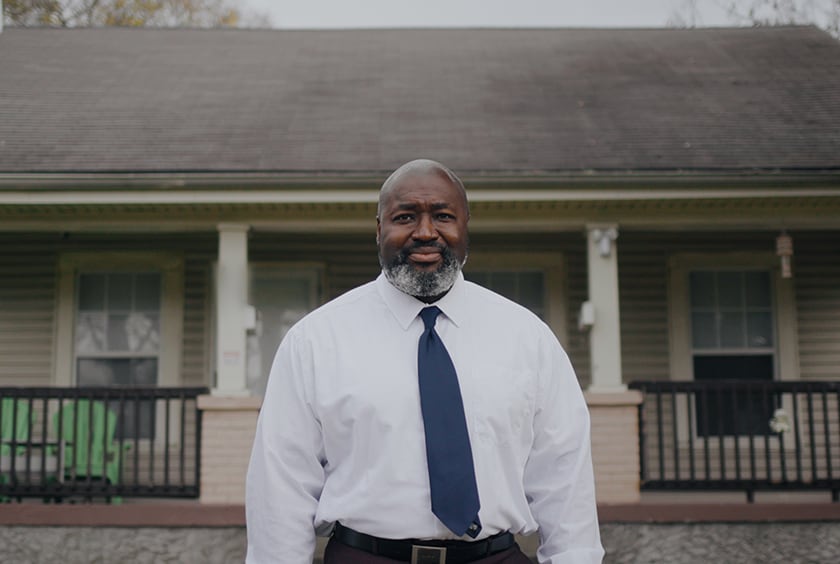How Crack-Cocaine Sentencing Prolongs Systemic Racial Injustice

Selling crack cocaine once sounded like a glamorous life to Matthew Charles, who grew up in low-income neighborhoods in North Carolina. Then he spent decades caught in the disparities of the justice system—disparities that inordinately impact Black men like Matthew.
In 1995, Matthew was arrested and ultimately sentenced to 35 years in prison—a harsh penalty for a nonviolent drug offense, due to the fact that he sold crack.
Crack and powder cocaine are almost identical chemically, but they have a history of being treated differently in the criminal justice system. Today it still takes 18 times as much powder cocaine as crack cocaine to get the same penalty at sentencing. In general, crack is more accessible in marginalized communities of color.
"I should have been, and was, held accountable ..." Matthew explains. But it wasn't until later that he realized his 35-year sentence was unduly harsh.
—Proverbs 11:1
EVERY FORMER PRISONER'S NIGHTMARE
Behind bars, another incarcerated man gave Matthew a Gideon Bible. After reading it cover to cover, Matthew gave his life to Christ and began living as a model citizen in prison.
Matthew walked free in June 2016, having served 21 years of his sentence. Soon he reunited with his family, found work, and began rebuilding his life. He spent Saturday mornings volunteering at a food pantry and stayed involved in church. Soft-spoken and kind, Matthew was known as a good citizen in his community, mirroring the two decades he'd spent behind bars without one disciplinary infraction.
In 2018, Matthew faced every former prisoner's nightmare: going back to prison. The U.S. Department of Justice had won an appeal claiming that he was ineligible for early release due to a previous sentence served in state prison. He was ordered to serve out the rest of his original prison term.
INEQUALITY AND BIAS IN THE CRIMINAL JUSTICE SYSTEM
Matthew's story caught America's attention. Nearly 140,000 people rallied to his cause, signing a petition to demand his release. On Jan. 3, 2019, Matthew Charles became one of the very first people to be released under the bipartisan FIRST STEP Act, which Prison Fellowship® helped to craft and support alongside many remarkable partners.
Serving prisoners since 1976, Prison Fellowship has witnessed firsthand racial disparities in the criminal justice system. At each stage of the U.S. criminal justice system, people of color—particularly Black Americans—confront systemic inequality and bias.
As the data can attest, people of color experience greater rates of arrest, greater use of force under apprehension and in custody, and harsher than average sentences when convicted. For example, at the arrest stage, while only 13% of Americans are Black, 27% of those arrested are Black. Further, Black Americans are significantly more likely to be arrested for a drug crime, even though rates of drug use and trafficking are roughly equal across all races. In 2019, 81% of defendants convicted for federal crack cocaine charges were Black.
ADVANCING JUSTICE THAT RESTORES
God cares about justice, and so should His people. Many are seeking to confront racial bias with fresh resolve and pursue justice that upholds the dignity of Black Americans. The 18:1 sentencing disparity for crack and powder cocaine is a clear wake-up call on this front. Ending this inequity is an important step in building a more restorative justice system.
Prison Fellowship works daily to advance justice that restores reflects the God-given value of all persons. We support proportional sentencing and justice that addresses the systemic biases and prejudices borne by people of color. In some cases, legislation can help us mitigate inequalities.
As followers of Christ, our faith calls us to action and accountability—to act justly, love mercy, and walk humbly (Micah 6:8). We take seriously the biblical mandate to pursue justice and equality in our communities. As we work to restore communities in prison and out, we will strive to reflect the mandate in Isaiah, helping people "learn to do good; seek justice, correct oppression" wherever it emerges (Proverbs 31:8-9).
WATCH: THE JUSTICE CHRONICLES
Matthew Charles spent decades caught in the disparities of the system. Will you put your faith in action to address the stark racial disparities in our justice system?
END THE DISPARITY
Will you put your faith in action to address such stark racial disparities in our justice system? Now is the time to raise your voice and make a difference. Send a letter today asking Congress and President Biden to work together to end the disparity between how crack and powder cocaine are punished.
DID YOU ENJOY THIS ARTICLE?
Make sure you don' t miss out on any of our helpful articles and incredible transformation stories! Sign up to receive our weekly newsletter, and you' ll get great content delivered directly to your inbox.
Your privacy is safe with us. We will never sell, trade, or share your personal information.